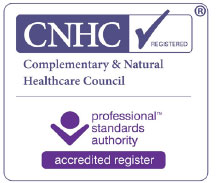FAQs
Nutritional Therapy
Nutritional Therapy is the application of nutrition science in the promotion of health, peak performance and individual care. Nutritional therapy practitioners use a wide range of tools to assess and identify potential nutritional imbalances and understand how these may contribute to an individual’s symptoms and health concerns. This approach allows them to work with individuals to address nutritional balance and help support the body towards maintaining health.
Nutritional therapy is recognised as a complementary medicine and is relevant for individuals with chronic conditions, as well as those looking for support to enhance their health and wellbeing. Practitioners consider each individual to be unique and recommend personalised nutrition and lifestyle programmes rather than a ‘one size fits all’ approach.
Practitioners never recommend nutritional therapy as a replacement for medical advice and always refer anyone with ‘red flag’ signs or symptoms to their medical professional. They will also frequently work alongside a medical professional and will communicate with other healthcare professionals involved in your care to explain any nutritional therapy programme that has been provided.
I offer a free 15 minute telephone consultation to discuss what nutritional therapy can offer you before booking an appointment. If you don’t feel it is right for you there is absolutely no obligation to book an appointment.
Before the first consultation, I will provide you with a health questionnaire to complete and return to me ahead of the appointment. The initial consultation lasts 1 hour, and in this time I will ask you some detailed questions about your current health concerns, symptoms, diagnosis and treatment, medical history, family history, lifestyle, levels of physical activity, use of medication and supplements, and diet. I will then evaluate your individual needs and use the extensive evidence base for nutritional science to develop a personalised, safe and effective nutrition and lifestyle programme for you.
Follow up consultations are generally 4-6 weeks later in order to monitor progress and make any necessary adjustments. Further follow-ups may be required depending on each individual situation.
This can vary. Some people will only need one appointment if needing straightforward dietary advice only. For more complex health problems I would recommend an initial consultation and at least one follow-up session 4-6 weeks later to check on progress and make any adjustments or additions to your health plan. Some clients benefit from ongoing support as they seek to address longer standing issues.
We will discuss this at your first appointment, and I have various treatment plans to make things more affordable if you do find that you need a number of sessions.
I am also available on email or phone if any questions arise after an appointment or you need clarification on any of my recommendations. There is no additional charge for this (within reason).
The initial consultation will take 1 hour and costs £70. This includes a 15 minute follow up call within 2 weeks of your appointment. Follow up consultations last 45 minutes and cost £40.
I sometimes recommend functional testing to help to build a clearer picture of your health, only if I think it’s necessary. You can decide whether you’re happy to go ahead with any tests, and payment is made separately. In the event of any testing taking place, I will support you with the interpretation of results and any follow-on recommendations.
As you start to make changes to your diet and lifestyle you may find you have questions or need clarification on certain things. I’m available by email and happy for you to contact me in-between appointments within reason. If I feel you require additional support or your health picture changes then I will recommend you make a follow-up appointment sooner.
A Nutritional Therapist is somebody who is appropriately qualified and has a recognised qualification in Nutritional Therapy. Nutritional therapists apply evidence-based nutrition science in the promotion of health, peak performance and individual care. They usually work in private practice offering bespoke health plans, using nutrition and lifestyle interventions to help support the body towards maintaining health.
A dietician is somebody who has a degree in Nutrition and Dietetics. Dietitians generally work with the NHS, although some will work directly with the public.
A nutritionist is anybody who claims to be an expert in the field of nutrition. This is a broad description because some nutritionists have not studied, meaning they are not appropriately qualified and do not belong to a governing body.
Colonic Hydrotherapy
During the first treatment a case history is taken followed by dietary recommendations to help your gut restore its natural balance and function. The procedure will be explained and you’ll have a chance to ask any questions.
The appointment will last around an hour, and the colonic itself will take between 30 to 45 minutes. During this time warm filtered water is gently introduced into the colon via the rectum (the speculum is inserted only 5cm). As the warm water enters, you’ll feel a fullness as your colon fills up, then a relaxing feeling as it empties. This filling and emptying is repeated several times, whilst the use of special techniques including ultra-sonic massage, acupressure and reflexology points, stimulate the release of toxins and stored matter. Herbs can be used to stimulate or relax the bowel depending on whether you have an overactive or underactive bowel. Probiotic implants can be used where dysbiosis (where the bacteria in your gut is out of balance) is indicated.
I use a closed system machine which means clean warm filtered water is fed gently in to the bowel, and the water and waste is flushed out through a pipe, ensuring no fuss, no mess and no smells.
Your dignity is preserved at all times. You’ll be given privacy to change and have access to private toilet facilities. You will only be exposed for a few seconds for the insertion of the speculum, and after that you’ll be covered throughout the treatment.
Most people find the procedure to be quite relaxing, with no discomfort. The colon fills and empties regularly as part of its normal function, so the treatment is nothing new. You may feel varying sensations of fullness and movement in your abdomen throughout the treatment.
Normally a minimum of three treatments, if you have never had colonics before, is needed to adequately clean the whole of the large intestine. However this is a variable factor depending on age, dietary habits, lifestyle and presenting symptoms. I will advise you on this during the first treatment.
Not at all. Your therapy will take place in a private treatment room by a trained therapist who understands the sensitivity of the procedure. It is perfectly normal to be a little embarrassed, but your therapist will completely understand and will try to put you at your ease. Once the tube has been inserted, you’ll remain covered for the rest of the treatment.
Not at all. It may feel a little strange as the small tube is inserted, and you may have a natural urge to squeeze it out again, but this passes quickly. Your therapist will then closely control the filling and emptying to ensure that you remain comfortable at all times. Occasionally the colon may contract during the treatment, giving a cramping sensation but this is easily tolerated and passes as soon as the bowel empties again.
Yes. The water is introduced at low level pressure (lower than the pressure caused naturally in the bowel during peristalsis and your natural bowel movements) so there is no danger. All equipment used is in sterile packs and disposed of after each treatment.
Most people will benefit from a colonic. ARCH members are professional therapists and do not make exaggerated claims about ‘curing’ digestive problems. However, experience shows us that colonics can provide relief from the symptoms of a wide range of digestive disorders, including IBS, constipation, bloating and flatulence. Many of our clients find that colonics offer help where modern medicine has failed, especially where symptoms have been dismissed under the catch-all diagnosis of IBS.
Colonic hydrotherapy is not just for digestive problems, it can also work to keep your bowels healthy, in the same way that visiting the gym can help keep you fit.
However, there are some circumstances in which the treatment is not recommended:
- Uncontrolled high blood pressure
- Severe haemorrhoids
- Severe anaemia
- Rectal bleeding
- Heart disease
- Strangulated abdominal or inguinal hernias
- Fissures or fistulas
- Kidney failure / insuffiency
- Bowel or rectal cancer
- Liver disease
- Inflammatory bowel disease ie Colitis, Crohn’s disease, Diverticulitis
- GI haemorrhage / perforation
You are also advised not to have a colonic if you think you may be pregnant. However, there is no reason not to have the treatment during your menstrual period.
Get in touch and I can advise you on whether colonic hydrotherapy would be beneficial for you.
Most of the important bowel bacteria are present on the bowel wall and are not removed during colonic hydrotherapy. Since these good bacteria breed best in a balanced environment, a colonic cleanse may actually improve their environment and increase their numbers. The good bacteria that is removed will replenish within 36 hours. If it appears that your bowel bacteria may be out of balance, I might suggest a probiotic implant and/or probiotics after your treatment.
When you get off the couch you’ll be given plenty of time in the private toilet for any excess water or waste to be eliminated. There is no rush whatsoever. You will be given an Aftercare sheet with advice for the following 24-48 hours, but generally you will be able to carry on with your normal routine.
General FAQs about Lesley and Dandelion Nutrition and Health
I studied at the College of Naturopathic Medicine (CNM) in Bristol for 3 years and graduated with a Diploma in Naturopathic Nutrition. I followed this up with study at the National College of Colonic Hydrotherapy (NCCH) in Devon, graduating as a Colonic Hydrotherapist.
Yes, I am a member of BANT (British Association for Nutrition & Lifestyle Medicine), the professional body for Nutritional Therapists, and with ARCH (Association of Registered Colon Hydrotherapists). I am registered with the CNHC (Complementary & Natural Healthcare Council) as a Nutritional Therapist and Colonic Hydrotherapist.
This means that I follow the strict CNHC Code of Conduct, Performance and Ethics and the BANT Professional Practice Handbook, have professional indemnity insurance for clinical practice and also meet the membership entry criteria found at this link:
www.bant.org.uk/nutritional-therapy-careers/join-bant/apply-for-membership/full-membership/
I also adhere to ARCH’s Code of Practice: www.colonic-association.org
Those dandelions that pop up in your garden and that you probably think of just as pesky weeds are actually powerful plants with a wide range of health benefits.
They are used in nutrition as a bitter herb which promote the flow of bile to support the digestive system and cleanse the liver, they stimulate the production of insulin to naturally reduce the risk of diabetes, and they contain calcium and vitamin K for healthy bones, teeth and heart. They are high in antioxidants, rich in fibre and a good source of vitamin A for vision and immune support.

Meet Lesley Painter
Bsc (Hons), Dip CNM, mBANT, CHNC, ARCH
I am a Nutritional Therapist and Colonic Hydrotherapist practicing in Cheltenham and Gloucester. A graduate in Naturopathic Nutrition from the College of Naturopathic Medicine (CNM) and in Colonic Hydrotherapy from the National College of Colonic Hydrotherapy (NCCH)…


